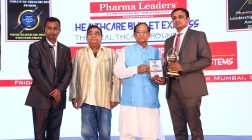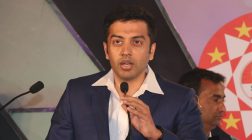compulsory licensing with price
NEW DELHI: Indian drug makers have urged the government to retain the option of compulsory licensing of a patented drug even as it considers a policy that will allow it to negotiate with drug companies on prices of patented drugs.
 OPPI Commemorative Publication – Improving Access Innovation and Reach of Healthcare in India OPPI Code of Pharmaceutical Practices – 2012
OPPI Commemorative Publication – Improving Access Innovation and Reach of Healthcare in India OPPI Code of Pharmaceutical Practices – 2012
The government is in the process of gathering feedback from stakeholders on a policy draft for determining prices of patented drugs in the country. Indian Pharma Alliance (IPA) and Indian Drug Manufacturers’ Association (IDMA), bodies representing the domestic pharma industry, have appealed to the department of pharmaceuticals that the proposed policy shouldn’t undermine grant of compulsory licences.
The government can ask a local manufacturer to supply a patented drug at a lower cost than the price of the innovator company three years after the grant of a patent if it finds that reasonable requirements of public have not been satisfied, the patented drug is not available at a reasonable price or the patent granted is not being commercially exploited fully.
A policy draft on pricing of patented drugs earlier this year had said “once a government appointed committee goes for some form of price regulation of patented medicines and fixes a price of the medicines which is accepted by the government, this fixed price would be supposed to be reasonable and hence it won’t be possible for the government to use the tool of compulsory licence on the ground of reasonableness of the price of the patented medicine”.
This raised apprehension that the country would stop considering grant of compulsory licences on grounds of pricing once a mechanism for negotiating patented drug prices is formalised. “This (negotiated) price is at best the lowest price at which the patent holding firm is ready to supply the drug. This is not a price that the government ‘fixes’ taking into account the costs and profits to the patent holding firm,” said DG Shah, secretary general of IPA. A price arrived at through negotiation cannot be considered as ‘reasonably affordable’ in a way the Indian Patents Act has envisaged, argued Shah. “We have submitted to the government that price negotiation for patented drugs shouldn’t in any way jeopardise provisions in the patent law which enable grant of compulsory licences,” said Daara Patel, secretary general, IDMA.
Both these industry bodies representing domestic drugmakers have also requested the government to use the term ‘negotiated prices’ rather than ‘fixed prices’ for the prices finalised by a government committee for patented drugs.
“I reckon, it would be too premature to comment on it until the policy is announced,” said Tapan Ray, director general, Organisation of Pharma Producers in India, another industry body representing multinational drug firms.
A committee earlier this year recommended a pricing formula for patented drugs for government procurement and insurance firms only. The panel didn’t support linking the marketing approval of a patented drug to pricing negotiation, claiming that doing so may lead to unavailability of that drug.
It recommended a mechanism to determine the price for patented drugs by benchmarking them with procurement prices of five developed countries —UK, Canada, France, Australia and New Zealand — and adjusting them to purchasing power parity of India.










